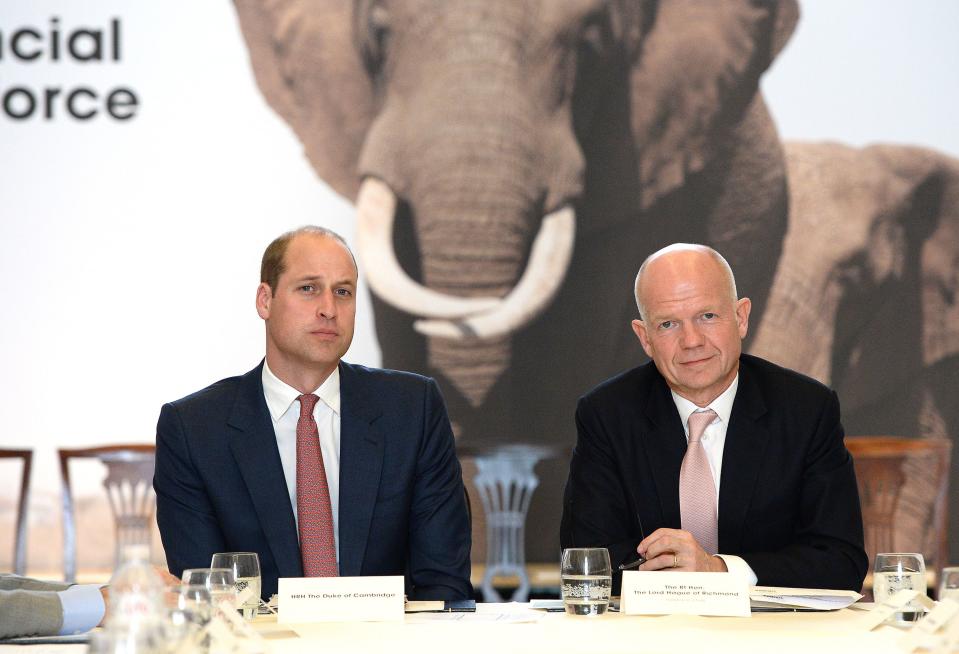Prince William praises fight against 'abhorrent' illegal wildlife trade in rare video message
Prince William has sent a video message in support of those trying to end the “abhorrent” illegal wildlife trade.
William, 38, is not often seen in front of the camera in this way, but he and his wife Kate have been embracing video messages more frequently since the lockdown prevented them carrying out regular engagements.
William’s message came after a report was released by Financial Action Task Force (FATF), the money laundering and terrorism funding watchdog, which highlighted the global threat of criminal activity.
In the report, the FATF said it is concerned about the lack of focus on the financial aspects of the major transnational crime, which it estimates to be worth between $7 and $23 billion (£5.6 and £18.5 billion) per year.
The FATF worked with the Duke of Cambridge’s United For Wildlife organisation on the report.
The duke called the report a “a pivotal moment in the fight against the illegal wildlife trade”.

Read more: Prince William wears face mask to visit those testing coronavirus vaccine
He added: “The work that has been done will help authorities trace the finances of the transnational organised crime gangs that facilitate this abhorrent activity.
“It underlines the need for us to work together to tackle the ill-gotten gains of wildlife poachers and traffickers and put a stop to this multi-billion criminal dollar enterprise.”
He said he was pleased the report would be used to educate governments around the world, and continued: “This will help to improve and co-ordinate the public and private sectors to detect, disrupt and prevent this crime.
“Because it is only through prioritising this issue and following the money that we will stop these criminals in their tracks.
“Once again, I am grateful to you all for your continued efforts to end the illegal wildlife trade for good.”

Read more: Prince William and Kate tell amputee, five, they're 'so proud' as he fundraises £1m for hospital
The report found criminals are using legitimate wildlife trade as a cover to move and hide the proceeds from wildlife crime, and also rely on bribing officials, like rangers, customs agents, prosecutors and judges.
Some examples in the report of illegally traded wildlife include juvenile glass eels, which can be worth as much as $6,000 (£4,800) in Europe, ivory, rhinoceros horn and pangolin scales.
The FATF said buyers and sellers make use of technology like VPN to hide their true locations.
It has urged governments to engage in “high-level political commitment” to tackle the crimes.
The illegal wildlife trade is something Prince William has been working to tackle for several years and has spoken at many conferences on.
He founded United for Wildlife in 2013, which tackles the illegal trade in terms of better onsite protection and closing down illegal routes.


